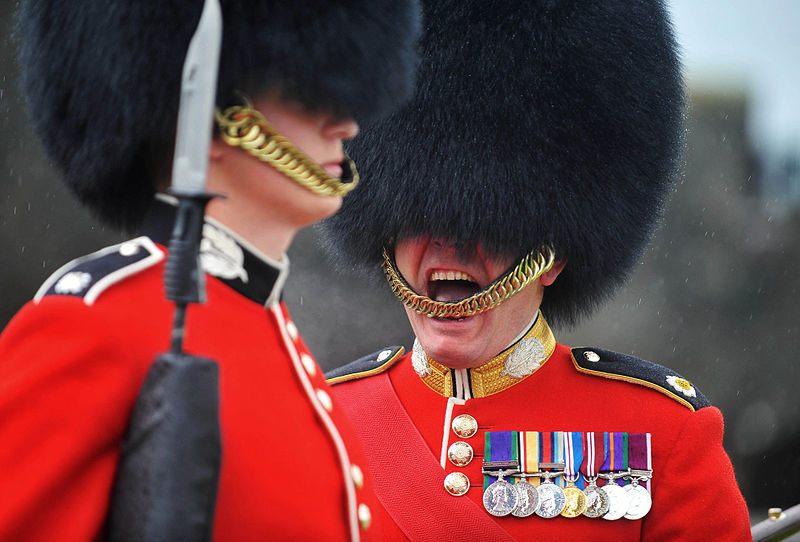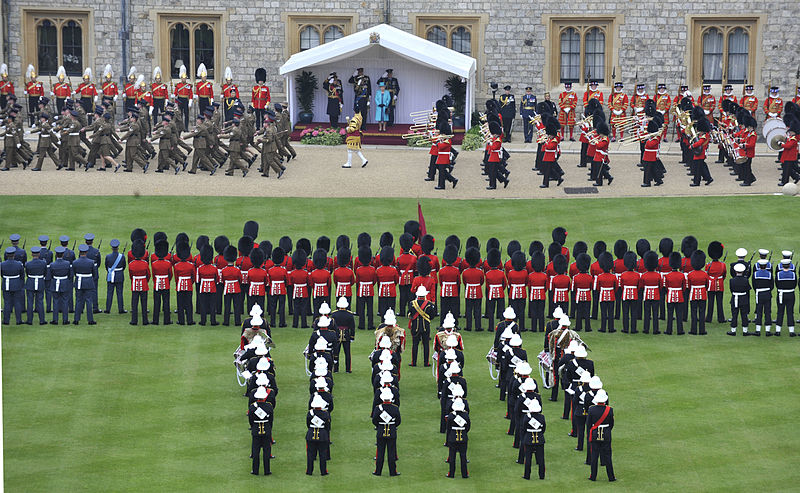When people think of the military, army discipline is one of the first things that come to mind. From waking up at the crack of dawn to enduring long hours of training, discipline is often associated with rigid routines and unwavering adherence to orders. While these elements are part of military life, army discipline is far more than simply following commands.
It’s a transformative force that moulds soldiers into responsible, resilient individuals. The discipline instilled in the army has far-reaching effects on personal growth, leadership, teamwork, and professional development.

Having served in both the regular Army and the Territorial Army, I’ve experienced firsthand how discipline shapes soldiers into the best versions of themselves. It’s about forging habits and values that not only enhance operational effectiveness but also carry over into life beyond the military. It’s a mindset that sticks with you, affecting how you approach everything from everyday challenges to complex, high-pressure situations.
What is Army Discipline?
At its core, army discipline is the framework that holds the military together. It ensures that every soldier works cohesively within their unit, trusts their comrades, and can operate effectively even in the most challenging situations. In the army, discipline is non-negotiable. It forms the backbone of military operations, maintaining order, efficiency, and reliability across every level of the organization.
Discipline goes beyond simply obeying orders. It’s about understanding the purpose of those orders and the importance of consistency. Whether it’s following strict protocols during a mission or maintaining physical and mental fitness, soldiers learn that discipline is the key to both individual and collective success.
For example, during my time on operations, even the smallest lapse in discipline, such as missing a step in a protocol, could have had serious consequences. We relied on a strict adherence to discipline to ensure the safety and success of every mission. This not only helped us maintain operational security but also built trust within the team, knowing that everyone was committed to the same high standards.

The Personal Growth Driven by Discipline
One of the most overlooked aspects of army discipline is how it fosters personal growth. The structured environment of the military compels soldiers to develop habits and qualities that last a lifetime. Here are some of the most profound ways that army discipline shapes personal development:
Time Management
One of the first lessons you learn in the army is that time is precious. Every day is meticulously scheduled, from morning physical training to evening debriefs. This rigid structure forces soldiers to manage their time effectively. In my experience, the army ingrained a sense of punctuality and efficiency that I carry with me to this day.
When you’re in a fast-paced military environment, there’s little room for wasted time. Whether you’re preparing for an operation or executing daily tasks, the ability to prioritise and stay focused is crucial. For example, during deployments, juggling multiple responsibilities such as gathering intelligence, reporting to superiors, and maintaining personal gear required precision time management.
Building Resilience
Army discipline also teaches resilience. The military life isn’t easy, and soldiers face both physical and emotional challenges. Whether it’s dealing with harsh conditions during deployments or pushing through the gruelling demands of training, army life builds mental toughness. It teaches you how to endure hardships, adapt to new environments, and maintain focus even when things get tough.
In Afghanistan, there were days when the conditions were brutal, and the demands of the mission weighed heavily on everyone. But through discipline, we learned to keep going, to compartmentalise stress, and to stay focused on the task at hand. This kind of resilience not only helps in military situations but also provides a solid foundation for dealing with life’s inevitable challenges.
Accountability and Responsibility
In the military, accountability is everything. Every action, big or small, has consequences, and soldiers quickly learn that they must take full responsibility for their roles. This sense of accountability is a direct result of the discipline instilled during training and service. It teaches you to be dependable, to own your mistakes, and to always strive to do better.
During my service, I experienced this firsthand. In a high-stakes environment, a simple miscommunication or lack of attention could have led to critical delays or, worse, compromised the mission. Taking accountability for every detail and ensuring that all tasks were executed perfectly was essential for success. This is a trait that’s just as valuable in civilian life, whether you’re managing a team at work or taking care of responsibilities at home.
Professional Growth Through Army Discipline
Beyond personal growth, army discipline plays a vital role in professional development. Soldiers don’t just learn how to follow orders—they learn how to lead, how to work in teams, and how to handle pressure with composure. These are all skills that directly translate into professional success, whether in the military or in civilian careers.
Leadership Development
Leadership is an integral part of military life, and discipline is the key to effective leadership. Army discipline teaches soldiers to remain composed and make clear-headed decisions, even in the most stressful situations. It instills the ability to lead by example and ensures that leaders can earn the respect of their subordinates by maintaining high standards of discipline themselves.
Throughout my time in the army, I was often placed in situations where decisive leadership was required. In the heat of the moment, discipline was what allowed me to remain calm and confident. This ability to lead effectively under pressure is something that translates seamlessly into civilian roles, especially in high-stakes professions where quick decision-making is critical.

Teamwork and Collaboration
Army discipline also fosters teamwork. In the military, no one works alone—every soldier relies on the discipline of their team members to ensure the mission’s success. Whether you’re in the field or behind the scenes, everyone must be on the same page, follow procedures, and trust that their comrades will do the same.
In my experience, teamwork in the army was all about trust. You had to know that the person next to you would be just as disciplined as you were, and that they would have your back when it mattered most. This collaborative spirit, built on a foundation of discipline, is just as important in civilian workplaces, where working effectively within a team is key to achieving goals.
Handling Pressure and Problem-Solving
The military is known for putting people in high-pressure situations, and discipline is what enables soldiers to think clearly and solve problems when it matters most. Whether it’s a logistics issue or a tactical challenge, soldiers are trained to assess the situation, stay focused, and come up with solutions under stress.
During my service, there were countless times when plans went awry, and we had to adapt on the fly. In these moments, discipline wasn’t just about following orders—it was about remaining calm, staying organized, and thinking critically to resolve the issue. This type of problem-solving, developed through military discipline, is an invaluable skill in any career where adaptability and quick thinking are necessary.
Why Army Discipline Matters Beyond the Military
For those who leave the military, the lessons of army discipline continue to resonate throughout life. The qualities of resilience, accountability, and leadership are universally applicable, whether you’re starting a new career, raising a family, or simply navigating the challenges of daily life.
In my own transition to civilian life, I found that army discipline gave me a distinct advantage. The habits I had built—punctuality, reliability, leadership, and adaptability—made the shift smoother than I anticipated. Employers appreciate the level of professionalism and responsibility that comes from a military background, and many of the skills developed through discipline are in high demand in civilian industries.

Conclusion
Army discipline is far more than a set of rules to follow—it’s a mindset that shapes soldiers into resilient, responsible, and adaptable individuals. It teaches soldiers how to thrive under pressure, how to lead by example, and how to work effectively within a team. Whether you’re still serving or have transitioned into civilian life, the discipline you develop in the army will continue to influence your personal and professional growth long after your service has ended.
The discipline learned in the military doesn’t just stay on the battlefield or in the barracks; it’s a lifelong asset. It equips soldiers with the tools they need to succeed in all areas of life, proving that army discipline is more than just following orders—it’s about becoming the best version of yourself.
It’s also a core value that employers outside of the military look for…



